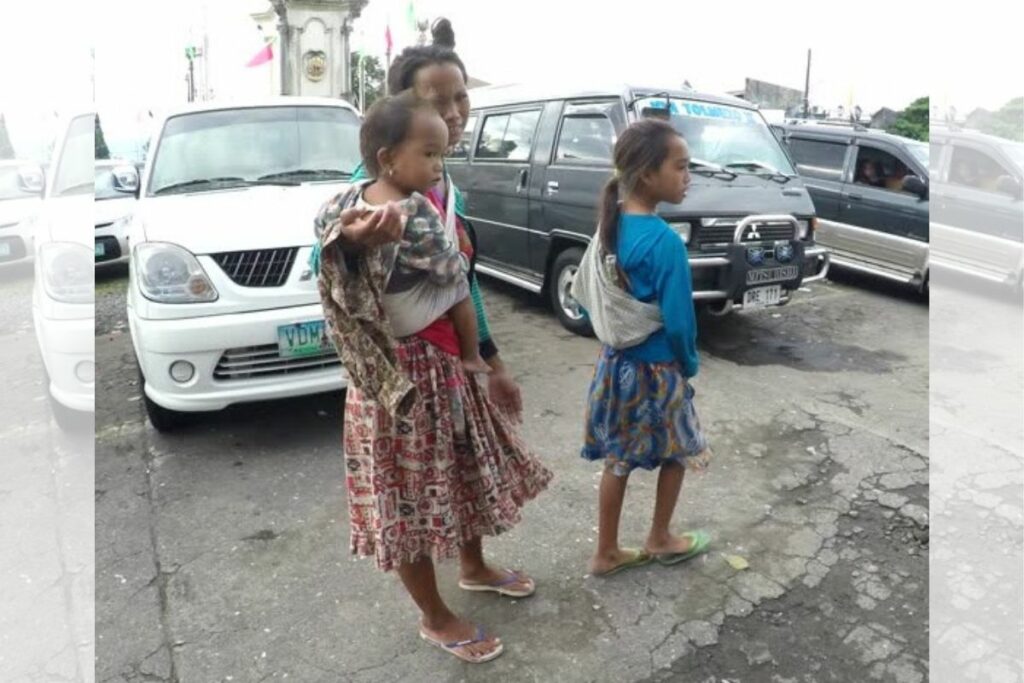Ever wondered about the people begging on the streets in the Philippines?
What I’m about to share doesn’t just apply here; it’s something I’ve noticed in many countries. In my view, begging often becomes a cycle that continues from one generation to the next, with little sign of change. Like any job, if it wasn’t profitable or sustainable, people wouldn’t keep doing it.
I’ll admit, I didn’t believe this when I first arrived in the Philippines.
But then something happened that changed my perspective. Let me tell you a story.
My Philanthropy in the Philippines
I met a young street girl named Edna in Ermita shortly after I arrived in the Philippines, about 14 years ago. She and her boyfriend were sleeping on a piece of cardboard in a corner of the city. Over the years, I’d see her occasionally. She was always hustling for spare change. Her boyfriend usually lay on the same piece of cardboard, doing nothing.
At some point, I made a conscious decision: I would try to help just one person. I didn’t aim to change their world completely; I just wanted to see if I could make even a small difference. Every time I saw Edna, I gave her a little money. I asked about her life, how she was doing, and if her boyfriend had found work. Eventually, they had a baby. Then another. Then a third. I lost track after that, as they moved around frequently and were hard to follow.
About five years ago, Edna asked me for some seed money to start a small street vending business selling cigarettes and candy, which is common among street vendors. I was encouraged. I would much rather see someone trying to earn a living than begging, so I gave her ₱1,000. That’s a good amount when cigarettes sell for around ₱20 a pack.
I only saw the cigarette stand once, and it was her boyfriend running it. The next time I ran into Edna, the stand was gone. She was back to begging, and her boyfriend was back on the cardboard. He had worked the little business just long enough to use up the money.
That Christmas, feeling sorry for the kids, I gathered a big bag of clothes from friends and delivered it to the family on Christmas Day. I never saw those clothes again.
Begging In The Philippines as a Profession
By this time, my Tagalog was conversational, and I was familiar with the local street scene. I began asking around. What I found out completely deflated my desire to help.
It turns out that Edna, along with many others, are essentially professional panhandlers. Begging isn’t just a last-resort act; for some, it’s a practiced way to make a living. I learned they were actually living in proper homes in Tondo, not on the streets. Each morning, they would wake up, put on their “mahirap” (poor) clothes like a uniform, and commute into the tourist areas to spend the day working—not at jobs, but asking for money.
It might sound unbelievable, but this practice is quite common in parts of the Philippines. For many families, this routine has become a sad but sustainable way to survive.

My Advice if You Want to Help
A friend of mine once said, “You could drive through these streets with a dump truck full of pesos, shoveling them out as you go. The next day, you’d see no visible change.”
He was right.
If you really want to make a difference, focus your resources. Don’t spread them too thin. Instead, invest in someone who truly wants to break the cycle. Look for someone who has already shown commitment and determination. Seek individuals who have completed high school, dream of going further, but simply don’t have the means to continue their education and support themselves at the same time.
Take this as an example: a four-year nursing degree at a top university in the Philippines costs around ₱1.5 million ($37,000), which includes living expenses. Once they graduate, they will have the keys to a stable, high-demand career both locally and internationally.
For a more affordable option, a 10-month caregiver course can cost less than ₱200,000 ($5,000) and still open doors to job opportunities abroad.
Ask me how I know. I’ve seen it happen. That kind of help changes everything.
Travel Tips for the Philippines on Beggars
If you want to give pesos to panhandlers, feel free to do so. If it makes you feel good to help someone in need, that’s your choice, and it shows your kindness.
However, let’s be clear—in many cases, it doesn’t lead to real change. It often keeps the cycle of begging going and can make you a target. Once you give money to one child, you might quickly find yourself surrounded by others, all expecting money too.
It’s like a Pied Piper situation—one coin turns into many, and soon, you’re followed down the street by a small group, each hoping you will give them money next.
If you really want to help, think about more lasting ways to give, like supporting local organizations or helping with education and job training. That’s where real change starts.
Help Those Actually Working in the Philippines
As a more meaningful and cheaper alternative, think about giving to the people you see collecting recyclables from the trash: plastics, scrap metal, and bottles. At least they are out there making an effort. Support those who are trying. Reward the will to work, no matter how humble it may be.
Here’s a quick tip to avoid panhandlers and street vendors: Walk on the sunny side of the street. Most Filipinos tend to avoid direct sunlight, so the shady side attracts more people, including panhandlers and vendors. The sunny side is often quieter, with fewer interruptions.
You’ll notice there are no photos of beggars in this post. That’s intentional. I don’t want to glamorize or promote begging as a spectacle, and I encourage others to avoid doing so as well.
Looking for a break from the chaos of the big city?
If you want a peaceful, tropical escape just a few hours from Manila, come stay with us at BADLADZ Adventure Resorts in Puerto Galera. Whether you enjoy island adventures, relaxing by a semi-private beach, or savoring incredible meals at the best international restaurant on Mindoro, we’ve got you covered.
We’re happy to help you plan your perfect island getaway—just reach out. Paradise is closer than you think!
Cheers
Sean



